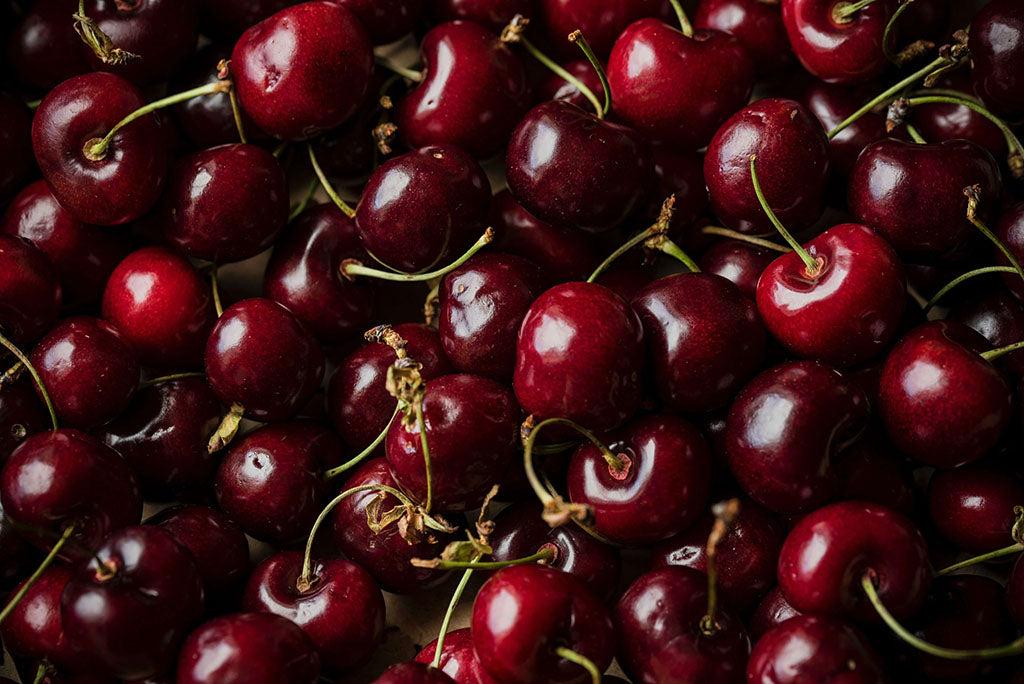Summary: In this blog, we’ll learn whether dogs can have cherries and if cherries are bad or good for dogs. We’ll discover if cherries are safe for dogs and what kind of cherries might be OK to share with your pooch… So many fruits and vegetables can be eaten by dogs, but there are […]
Can Dogs Eat Cherries?

Summary: In this blog, we’ll learn whether dogs can have cherries and if cherries are bad or good for dogs. We’ll discover if cherries are safe for dogs and what kind of cherries might be OK to share with your pooch…
So many fruits and vegetables can be eaten by dogs, but there are also many that cannot be consumed by them. So, what about sweet, popular, richly colored cherries? Are cherries safe for dogs…?
Are Cherries Safe For Dogs?
Cherries are a nutritious fruit, but when it comes to sharing them with a dog, caution is everything! Dogs can only be given small amounts of the flesh of a cherry. The danger in cherries is present the most in the stem, leaves, and pips. These parts of the plant contain cyanide which isn’t safe for a dog to consume.
So, if you want to offer your dog a cherry or two then you have to make sure all of these parts of the fruit are detached from the flesh, otherwise, you’ll risk harming your pooch. This goes for all types of cherries; black cherries, rainier cherries, and bing cherries.
However, we’d recommend sticking to safer fruits when it comes to treating your dog to something nutritious and sweet like a few pieces of banana or a handful of blueberries. These have a satisfactory nutritional load for dogs and come with far fewer risks when it comes to their ingesting and digesting of them.
Can Dogs Eat Dried Cherries?
You should not feed your dog dried cherries. You also should not feed your dog maraschino cherries or cherries that are sat in syrups like glacé cherries. The sugars and preservatives present in these syrups are not good for a dog to consume and could harm your pet, even if no stems, leaves, or pips are present in the actual way these cherries are served.

Dog Ate Cherry Pip
If your dog has eaten one cherry pip, try not to panic. This shouldn’t be enough to cause a toxic reaction in your dog, but it still may cause some upset in their digestive tract, and there is a risk of a blockage occurring – particularly in puppies and smaller breeds. Monitor them for 24 hours and look out for vomiting, constipation/decrease in poop production and/or a disinterest in food. If you spot any of these signs, take them to their vet and let them know they’ve eaten a cherry pip.
If your dog has eaten loads of whole cherries at once, you should call your veterinarian as a matter of urgency. Cyanide poisoning usually presents itself within 15-20 minutes of eating too many cherries and signs of it include dilated pupils, bright red gums, and difficulty breathing. Sometimes a dog may go into shock, so it really is imperative you get a dog who’s eaten a lot of whole cherries seen by a professional pronto.
Other foods and beverages a dog should be kept away from can be found below in our PetLab Co. guide which lists all items that are known to be toxic to dogs:

 S
S



